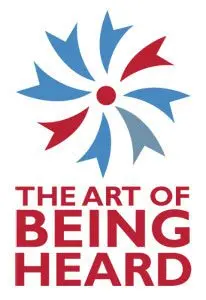Nifont Dolgopolov read for us the book by Nina Zvereva “I speak – they listen to me. Lessons of practical rhetoric»
NINA ZVEREVA – TV journalist, lecturer at Moscow State University. M. V. Lomonosov and VGIK, professor at the Ostankino Television School, laureate of the TEFI award. Author of popular books on the art of professional communication and coach for businessmen and politicians.
Nina Zvereva “I speak – they listen to me. Lessons in Practical Rhetoric, Alpina Publishers, 234 p.
“Speak clearly – understand correctly” is an extremely relevant topic. It is clear to me, as a professional Gestalt therapist, that most psychological problems between people begin because of defects in utterance and speech perception. Communication, personal and professional, seems so simple to us that we stop noticing our mistakes and quietly lose mutual understanding. Nina Zvereva’s book helps to recognize and correct these mistakes. Like other good communication textbooks, the book contains tips, explanations, cautionary tales, illustrations, and even homework assignments. Fortunately, the author is not at all characterized by narcissism and a sense of his own infallibility. But in the book there is lightness, irony and great personal experience in conducting publicity trainings and observing the communication style of famous TV presenters, top managers, and politicians. Nina Zvereva does not impose her own beliefs on the reader – she simply offers to try exercises that improve communication, communication aimed at a specific goal, result. Here, for example, is a task that works out the rule of “three I” (story, irony, sincerity): “Try to tell about the most important success in your life with irony …” (Chapter 16). The exercise helps to build your speech in such a way that the interlocutor can feel the personality of the speaker as much as possible, experience trust and sympathy for him. The author invites us to determine for ourselves which oratory style best suits our personal characteristics – openness and artistry (Artist type) or soft insinuation and modesty (Znayka type). And there are also speakers like “Tribune”, “Friend”, “Teacher” … But the question is – what is more effective: open communication or manipulation (influencing the interlocutor with a goal or intention hidden from him)? The author’s opinion is obvious: there is no need to “secretly influence” the audience if we are confident enough in ourselves to admit our desires and needs. There is no need to manipulate if, taking into account the personality of another person and the laws of perception of oral information, we can build our speech in the most convincing way for a partner.










